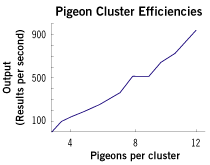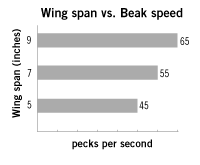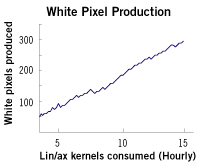 Type: Public (NASDAQ: GOOG) and (LSE: GGEA)
Type: Public (NASDAQ: GOOG) and (LSE: GGEA)
Founded: Menlo Park, California (1998)
Location:Mountain View, California, USA
Key people:
Eric E. Schmidt, CEO/Director
Sergey Brin, Technology President
Larry E. Page, Products President
George Reyes, CFO
Revenue: $7.14 Billion USD (2006)
Net income: $1.69 Billion USD (2005)
Employees: 6,800 (2006)
Google Inc. (NASDAQ: GOOG and LSE: GGEA) is an American multinational software corporation, first incorporated as a privately held corporation in September, 1998, that specializes in search engine, information retrieval technology and online advertising. With a market capitalization of US$118.32 billion as of June 2006, Google is the largest internet search company in the world, almost twice as large as rival Yahoo!; The company employs approximately 6,800 employees and is based in Mountain View, California. Eric Schmidt, formerly chief executive officer of Novell, was named Google's CEO when co-founder Larry Page stepped down. The name "Google" originated from a misspelling of "googol," which refers to 10100 (a 1 followed by one-hundred zeros). Google has become well known for its corporate culture and innovative, clean products, and has a major impact on online culture. The verb "to google" has come to mean "to perform a Web search", usually with the Google search engine. Google's services are run on several server farms, which, in 2004, consisted of over 30 clusters of up to 2,000 PCs per cluster. Each cluster contains one petabyte of data with sustained transfer rates of 2 Gbps. Combined, over four billion web pages, averaging 10 Kb each, have been fully indexed.
Early history
Google began as a research project in January, 1996 by Larry Page and Sergey Brin, two Ph.D. students at Stanford. They hypothesized that a search engine that analyzed the relationships between websites would produce better results than existing techniques (existing search engines at the time essentially ranked results according to how many times the search term appeared on a page). It was originally nicknamed, "BackRub," because the system checked backlinks to estimate a site's importance. A small search engine called RankDex was already exploring a similar strategy. Convinced that the pages with the most links to them from other highly relevant Web pages must be the most relevant pages associated with the search, Page and Brin tested their thesis as part of their studies, and laid the foundation for their search engine. Originally the search engine used the Stanford website with the domain google.stanford.edu. The domain google.com was registered on September 15, 1997. They formally incorporated their company, Google Inc., on September 7, 1998 at a friend's garage in Menlo Park, California. In March 1999, the company moved into offices at 165 University Avenue in Palo Alto, home to a number of other noted Silicon Valley technology startups. Google received a big break in 1999 when one of the most popular search engines, AltaVista, relaunched itself as a user web entry point, or portal. This unexpected change alienated part of AltaVista's user base. Google quickly outgrew its University Avenue home. The company settled into a complex of buildings, called the Googleplex in Mountain View in 1999. Silicon Graphics leased these buildings to Google. The Google search engine attracted a loyal following among the growing number of Internet users. They were attracted to its simple, uncluttered, clean design — a competitive advantage to attract users who did not wish to enter searches on web pages filled with visual distractions. This appearance, while imitating the early AltaVista, had behind it Google's unique search capabilities. In 2000, Google began selling advertisements associated with the search keyword to produce enhanced search results for the user. This strategy was important for increasing advertising revenue, which is based upon the number of "hits" users make upon ads. The ads were text-based in order to maintain an uncluttered page design and to maximize page loading speed. It also only cost a very small amount per click to the websites that advertised this way. This model of selling keyword advertising was originally pioneered by Goto.com (later renamed Overture, then Yahoo! Search Marketing). While many of its dot-com rivals failed in the new Internet marketplace, Google quietly rose in stature while generating revenue. U.S. Patent 6,285,999 describing Google's ranking mechanism (PageRank) was granted on September 4, 2001. The patent was officially assigned to Stanford University and lists Lawrence Page as the inventor. Google's declared code of conduct is, "Don't Be Evil", a phrase which they went so far as to include in their prospectus (aka "red herring" or "S-1") for their IPO, noting, "We believe strongly that in the long term, we will be better served — as shareholders and in all other ways — by a company that does good things for the world even if we forgo some short term gains."
Google's Logo
Logo The Google site often includes humorous features such as cartoon modifications of the Google logo to recognize special occasions and anniversaries. Known as "Google Doodles," most have been drawn by Google's international webmaster, Dennis Hwang. Not only may decorative drawings be attached to the logo, but the font design may also mimic a fictional or humorous language such as Star Trek Klingon and Leet. The logo is also notorious among web users for April Fool's Day tie-ins and jokes about the company.
Financing and initial public offering
The first funding for Google as a company was secured in the form of a $100,000 contribution from Andy Bechtolsheim, co-founder of Sun Microsystems, given to a corporation which didn't yet exist. After a frantic few weeks, this was topped up to give an initial investment of almost $1 million. Around six months later, a much larger round of funding was announced, with the major investors being rival venture capital firms Kleiner Perkins Caufield & Byers and Sequoia Capital. In October, 2003, while discussing a possible IPO (Initial Public Offering of shares), Microsoft approached the company about a possible partnership or merger. However, no such deal ever materialized. In January, 2004, Google announced the hiring of Morgan Stanley and Goldman Sachs Group to arrange an IPO. The IPO was projected to raise as much as $4 billion. On April 29, 2004, Google made an S-1 form SEC filing for an IPO to raise as much as $2,718,281,828. This alludes to Google's corporate culture with a touch of mathematical humor as e ≈ 2.718281828. April 29 was also the 120th day of 2004, and according to section 12(g) of the Securities Exchange Act of 1934, "a company must file financial and other information with the SEC 120 days after the close of the year in which the company reaches $10 million in assets and/or 500 shareholders, including people with stock options. Google has stated in its Annual filing for 2004 that every one of its 3,021 employees, "except temporary employees and contractors, are also equity holders, with significant collective employee ownership," so Google would have needed to make its financial information public by filing them with the SEC regardless of whether or not they intended to make a public offering. As Google stated in the filing, their, "growth has reduced some of the advantages of private ownership. By law, certain private companies must report as if they were public companies. The deadline imposed by this requirement accelerated our decision." The SEC filing revealed that Google turned a profit every year since 2001 and earned a profit of $105.6 million on revenues of $961.8 million during 2003. In May 2004, Google officially cut Goldman Sachs from the IPO, leaving Morgan Stanley and Credit Suisse First Boston as the joint underwriters. They chose the unconventional way of allocating the initial offering through an auction (specifically, a "Dutch auction"), so that "anyone" would be able to participate in the offering. The smallest required account balances at most authorized online brokers that are allowed to participate in an IPO, however, are around $100,000. In the run-up to the IPO the company was forced to slash the price and size of the offering, but the process did not run into any technical difficulties or result in any significant legal challenges. The initial offering of shares was sold for $85 a piece. The public valued it at $100.34 at the close of the first day of trading, which saw 22,351,900 shares change hands. After some initial stumbles, Google's initial public offering took place on August 19, 2004. 19,605,052 shares were offered at a price of $85 per share. Of that, 14,142,135 (another mathematical reference as √2 ≈ 1.4142135) were floated by Google and 5,462,917 by selling stockholders. The sale raised $1.67 Billion, of which approximately $1.2 Billion went to Google. The vast majority of Google's 271 million shares remained under Google's control. The IPO gave Google a market capitalization of more than $23 Billion. Many of Google's employees became instant paper millionaires. Yahoo!, a competitor of Google, also benefited from the IPO because it owns 2.7 million shares of Google. The company was listed on the NASDAQ stock exchange under the ticker symbol GOOG.
Growth
In February 2003, Google acquired Pyra Labs, owner of Blogger, a pioneering and leading weblog hosting website. Some analysts considered the acquisition inconsistent with Google's business model. However, the acquisition secured the company's competitive ability to use information gleaned from blog postings to improve the speed and relevance of articles contained in a companion product to the search engine, Google News. At its peak in early 2004, Google handled upwards of 84.7 percent of all search requests on the World Wide Web through its website and through its partnerships with other Internet clients like Yahoo!, AOL, and CNN. In February 2004, Yahoo! dropped its partnership with Google, providing an independent search engine of its own. This cost Google some marketshare, yet Yahoo!'s move highlighted Google's own distinctiveness, and today the verb "to google" has entered a number of languages (first as a slang verb and now as a standard word), meaning, "to perform a web search" (a possible indication of "Google" becoming a genericized trademark). Analysts speculate that Google's response to its separation from Yahoo! will be to continue to make technical and visual enhancements to personalized searches, using the personal data that is gathering from orkut, Gmail, and Froogle to produce unique results based on the user. Frequently, new Google enhancements or products appear in its inventory. Google Labs, the experimental section of Google.com, helps Google maximize its relationships with its users by including them in the beta development, design and testing stages of new products and enhancements of already existing ones. After the IPO, Google's stock market capitalization rose greatly and the stock price more than quadrupled. On August 19, 2004 the number of shares outstanding was 172.85 million while the "free float" was 19.60 million (which makes 89% held by insiders). In January, 2005 the shares outstanding was up 100 million to 273.42 million, 53% of that was held by insiders which made the float 127.70 million (up 110 million shares from the first trading day). The two founders are said to hold almost 30% of the outstanding shares. The actual voting power of the insiders is much higher, however, as Google has a dual class stock structure in which each Class B share gets ten votes compared to each Class A share getting one. Page says in the prospectus that Google has, "a dual class structure that is biased toward stability and independence and that requires investors to bet on the team, especially Sergey and me." The company has not reported any treasury stock holdings as of the Q3 2004 report. On June 1, 2005, Google shares gained nearly 4 percent after Credit Suisse First Boston raised its price target on the stock to $350. On that same day, rumors circulated in the financial community that Google would soon be included in the S&P 500. When companies are first listed on the S&P 500 they typically experience a bump in share price due to the rapid accumulation of the stock within index funds that track the S&P 500. The rumors, however, were premature and Google was not added to the S&P 500 until 2006. Nevertheless, on June 7, 2005, Google was valued at nearly $52 billion, making it one of the world's biggest media companies by stock market value. On August 18, 2005 (one year after the initial IPO), Google announced that it would sell 14,159,265 (another mathematical reference as π ≈ 3.14159265) more shares of its stock to raise money. The move would double Google's cash stockpile to $7 billion. Google said it would use the money for "acquisitions of complementary businesses, technologies or other assets". On September 28, 2005, Google announced a long-term research partnership with NASA which would involve Google building a 1-million square foot R&D center at NASA's Ames Research Center. NASA and Google are planning to work together on a variety of areas, including large-scale data management, massively distributed computing, bio-info-nano convergence, and encouragement of the entrepreneurial space industry. The new building would also include labs, offices, and housing for Google engineers. Time Warner's AOL unit and Google unveiled an expanded partnership on December 21, 2005, including an enhanced global advertising partnership and a $1 Billion investment by Google for a 5% stake in AOL. As part of the collaboration, Google plans to work with AOL on video search and offer AOL's premium-video service within Google Video. This will allow users of Google Video to search for AOL's premium-video services. Display advertising throughout the Google network will also increase. Additionally, Google has also recently formed a partnership with Sun Microsystems to help share and distribute each other's technologies. As part of the partnership Google will hire employees to help in the open source office program OpenOffice.org. With Google's increased size comes more competition from large mainstream technology companies. One such example is the rivalry between Microsoft and Google. Microsoft has been touting its MSN Search engine to counter Google's competitive position. Furthermore, the two companies are increasingly offering overlapping services, such as webmail (Gmail vs. Hotmail), search (both online and local desktop searching), and other applications (for example, Microsoft's Windows Live Local competes with Google Earth). Some have even suggested that in addition to an Internet Explorer replacement Google is designing its own Linux-based operating system called Google OS to directly compete with Microsoft Windows. There are also rumors of a Google web browser, primarily fueled by the fact that Google is the owner of the domain name "gbrowser.com." This corporate feud is most directly expressed in hiring offers and defections. Many Microsoft employees who worked on Internet Explorer have left to work for Google. This feud boiled over into the courts when Kai-Fu Lee, a former vice-president of Microsoft, quit Microsoft to work for Google. Microsoft sued to stop his move by citing Lee's non-compete contract (he had access to much sensitive information regarding Microsoft's plans in China). Google and Microsoft reached a settlement out of court on 22 December 2005, the terms of which are confidential. Click fraud has also become a growing problem for Google's business strategy. Google's CFO George Reyes said in a December 2004 investor conference that "something has to be done about this really, really quickly, because I think, potentially, it threatens our business model." Some have suggested that Google is not doing enough to combat click fraud. Jessie Stricchiola, president of Alchemist Media, called Google, "the most stubborn and the least willing to cooperate with advertisers," when it comes to click fraud. While the company's primary market is in the web content arena, Google has also recently began to experiment with other markets, such as radio and print publications. On January 17, 2006, Google announced that it had purchased the radio advertising company dMarc, which provides an automated system that allows companies to advertise on the radio. This will allow Google to combine two niche advertising media -- the Internet and radio -- with Google's ability to laser-focus on the tastes of consumers. Google has also begun an experiment in selling advertisements from its advertisers in offline newspapers and magazines, with select advertisements in the Chicago Sun-Times. They have been filling unsold space in the newspaper that would have normally been used for in-house advertisements. During the third quarter 2005 Google Conference Call, Eric Schmidt said, "We don't do the same thing as everyone else does. And so if you try to predict our product strategy by simply saying well so and so has this and Google will do the same thing, it's almost always the wrong answer. We look at markets as they exist and we assume they are pretty well served by their existing players. We try to see new problems and new markets using the technology that others use and we build." After months of speculation, Google was added to the Standard & Poor's 500 index (S&P 500) on March 31, 2006. Google replaced Burlington Resources, a major oil producer based in Houston that had been acquired by ConocoPhillips.. The day after the announcement Google's share price rose by 7%.
Salaries
Originally, typical salaries at Google were considered to be quite low by industry standards. For example, some system administrators earned no more than $33,000 — while $40,000 at that time was considered to be low for the Bay Area job market. Nevertheless, Google's excellent stock performance following the IPO has enabled these early employees to be competitively compensated by participation in the corporation's remarkable equity growth. In 2005, Google has implemented other employee incentives such as the Google Founders' Award, in addition to offering higher salaries to new employees. Google's workplace amenities, culture, global popularity, and strong brand recognition have also attracted potential applicants.
After the company's IPO in August 2004, it was reported that Founders Sergey Brin and Larry Page, as well as CEO Eric Schmidt, have accepted a base salary of $1.00, echoing the reported salary of Apple's Steve Jobs. They have all declined recent offers of income bonuses and increases in compensation by Google's board of directors. This effectively reduces their tax liability, because under current U.S. tax law, salary income is taxed at a top rate of 35%, whereas capital gains tax, which applies to stock grants, maxes out at 15% for profits derived from long-term capital gains. Obtaining remuneration through stock instead of income is a common tax minimization strategy for many upper-echelon U.S. executives. In a 2006 report of the world's richest people, Forbes reported that Sergey Brin was #26 with a net worth of $12.9 Billion, and Larry Page was #27 with a net worth of $12.8 Billion.
Corporate culture
Google adopts a relaxed corporate culture, reminiscent of the Dot-com boom. Google's corporate philosophy is based on principles like "You can make money without doing evil", "You can be serious without a suit" and, "Work should be challenging and the challenge should be fun." A complete list of corporate fundamentals is available on Google's website. The company encourages equality within corporate levels. Twice a week there is a roller hockey game in the company parking lot. Google's relaxed corporate culture can also be seen externally through their holiday variations of the Google logo.
"Twenty percent" time
All Google engineers are encouraged to spend 20% of their work time on projects that interest them. The time can be allocated to one day a week, or pooled into a month. Some of Google's newer services, such as Gmail, Google News and orkut, are said to have originated from these independent endeavors.
Googleplex
As a further play on Google's name, its headquarters, located in California, are referred to as "the Googleplex" — a googolplex being 1 followed by a googol of zeros, and the HQ being a complex of buildings (cf. multiplex, cineplex, etc). The lobby is decorated with a piano, lava lamps, and a real-time projection of current search queries. The hallways are full of exercise balls and bicycles. Each employee has access to the corporate recreation center. Recreational amenities are scattered throughout the campus, and include a workout room with weights and rowing machines, locker rooms, washers and dryers, a massage room, assorted video games, Foosball, a baby grand piano, a pool table, and ping pong. In addition to the rec room, there are snack rooms stocked with various cereals, gummy bears, toffee, licorice, cashews, yogurt, carrots, fresh fruit, and dozens of different drinks including fresh juice, soda, and make your own cappuccino.
April Fool's Day jokes
Main article: Google's hoaxes
Google has a tradition of creating April Fool's Day jokes such as Google MentalPlex, which featured the use of mental power to search the web. In 2002, they claimed that pigeons were the secret behind their growing search engine. In 2004, it featured Google Lunar, which featured jobs on the moon, and in 2005, a fictitious brain-boosting drink, termed Google Gulp, was announced. In 2006, they came up with Google Romance. One can find other pranks hidden between Google's pages. Additionally, in the languages list one can find the Bork! Bork! Bork! version, imitating the Muppet Show's Swedish Chef. They also offer versions in Pig Latin, Elmer Fudd, Klingon, and Leet (or h4x0r). Some people thought the announcement of Gmail in 2004 around April Fool's Day (as well as the doubling of Gmail's storage space to two gigabytes in 2005) was a joke. In 2005, featured on the Gmail homepage, was a comedic graph depicting Google's goal of "infinity plus one" GB.
IPO and culture
Many people speculated that Google's initial public offering would inevitably lead to changes in the company's culture, because of shareholder pressure for employee benefit reductions and short-term advances, or because a large number of the company's employees would suddenly become millionaires on paper. In a report given to potential investors, co-founders Sergey Brin and Larry Page promised that the IPO would not change the company's culture. Later Mr. Page said, "We think a lot about how to maintain our culture and the fun elements."
As Google grows, many analysts are finding that the company is becoming more "corporate." In 2005, articles in The New York Times and other sources began suggesting that Google had lost its anti-corporate, Don't Be Evil philosophy.
From Wikipedia, the free encyclopedia
links:

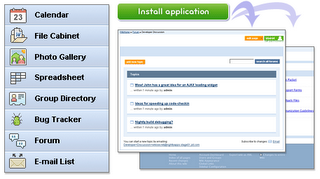





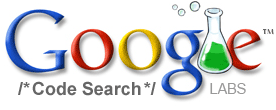
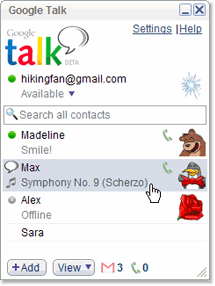
 a commemorative logo appears on today's homepage
a commemorative logo appears on today's homepage google give the same message in google sitemaps:
google give the same message in google sitemaps:
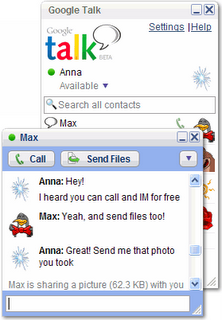
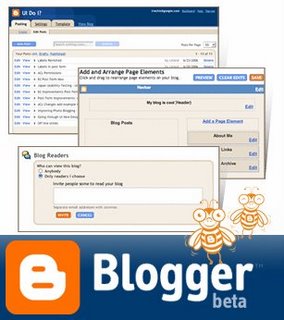 Google has started today testing an enhanced version of its blog publishing service Blogger in Beta;
Google has started today testing an enhanced version of its blog publishing service Blogger in Beta; Building upon the breakthrough work of B. F. Skinner, Page and Brin reasoned that low cost pigeon clusters (PCs) could be used to compute the relative value of web pages faster than human editors or machine-based algorithms. And while Google has dozens of engineers working to improve every aspect of our service on a daily basis, PigeonRank continues to provide the basis for all of our web search tools.
Building upon the breakthrough work of B. F. Skinner, Page and Brin reasoned that low cost pigeon clusters (PCs) could be used to compute the relative value of web pages faster than human editors or machine-based algorithms. And while Google has dozens of engineers working to improve every aspect of our service on a daily basis, PigeonRank continues to provide the basis for all of our web search tools.